Deepcut recruit Cheryl James 'took overdose at school'
- Published
Cheryl James, 18, from Llangollen, Denbighshire, was found dead at Deepcut barracks in November 1995
A teenage soldier found dead at the Deepcut Army base in Surrey 20 years ago took an overdose three years earlier, an inquest has heard.
Cheryl James was treated in hospital after taking "six-to-eight" painkillers in 1992 after the death of her cousin, her father told the hearing.
Des James viewed it as a cry for help at a tough time for the family.
The family's lawyer said the death of 18-year-old Pte James may not have been self-inflicted.
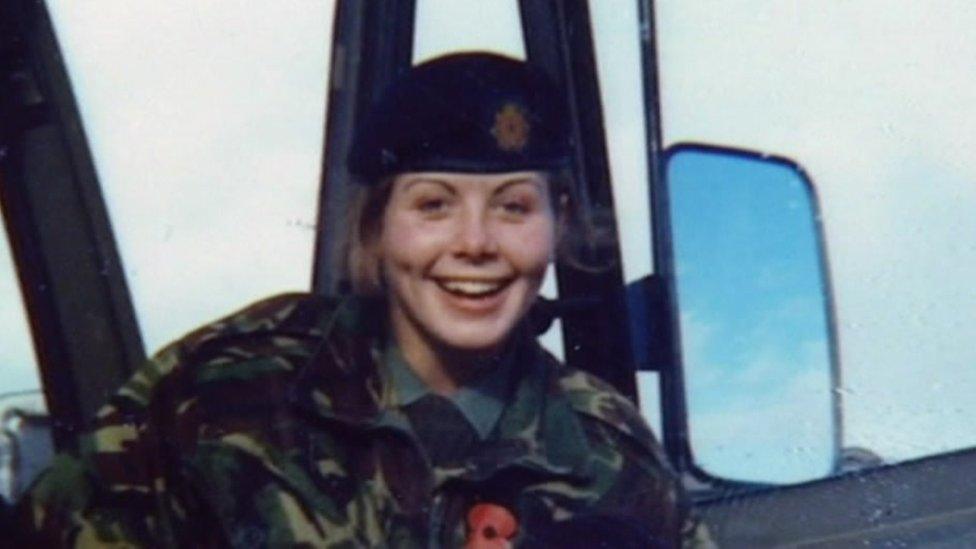
Pte Cheryl James died at Deepcut Barracks in Surrey in 1995
Pte James, from Denbighshire, was found shot dead at the base in November 1995 - one of four deaths of recruits at Deepcut between 1995 and 2002 amid claims of bullying and abuse.
The army said the bullet wound to her head was self-inflicted, but in 1995 a coroner recorded an open verdict.
'Cry for help'
Mr James, the first person to testify at the new inquest, granted by the High Court in 2014 as a result of the emergence of new evidence, told the coroner he hoped for a "thorough" investigation into his daughter's death.
"As long as at the end of the inquest I'm able to feel confident everything that could be done has been done, I would be satisfied," he said.
Mr James was involved in sharp exchanges with a barrister representing Surrey Police, during which it emerged his daughter had taken six-to-eight paracetamol while at school following the death of her cousin, Rob, in 1992.
He said: "I guess there was an assumption that it was a cry for help and it became a part of what we were all going through."
Mr James also said he had been unaware until after the first inquest of letters from his daughter saying she had wanted to leave the Army.
The Woking Coroner's Court hearing also heard Pte James had been the victim of an alleged rape by two boys when she was 14.
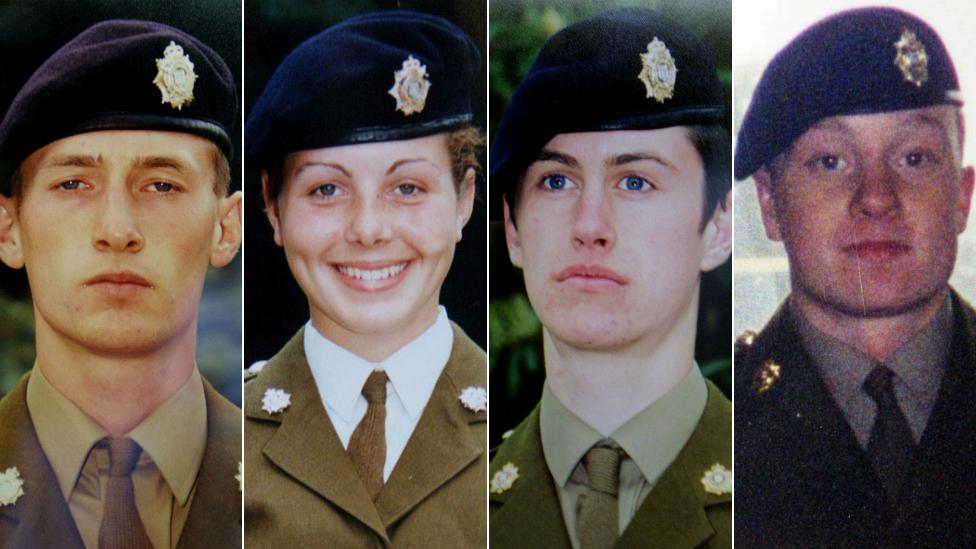
Privates Benton, James, Gray and Collinson, all died at Deepcut between 1995 and 2002
Who were the Deepcut four? Background to the deaths and timeline of events
Mr James told the inquest he and his wife Doreen were not aware of the alleged rape at the time.
"All my wife knew was she wanted to get the morning-after pill," he said. "The alleged assault was something we found out about a lot later."
Earlier, the family's barrister said there was evidence there might have been a "third-party involvement" in Pte James's death.
Alison Foster QC, acting of behalf of human rights organisation Liberty and representing Pte James's family, said: "Now there is distinguished pathological evidence showing that the shot that killed Cheryl James may not have been self-inflicted.
'Distracting' police
But John Beggs QC, acting for Surrey Police, dismissed such claims as speculative.
He questioned Mr James's assertion that the police investigation had been cursory.
He said the force had been dealing with a serial rapist and the search for schoolgirl Milly Dowler at the same time as looking again at Cheryl's death in 2002.
And he asked him: "Did it ever occur to you that you yourself may have been distracting Surrey Police?"
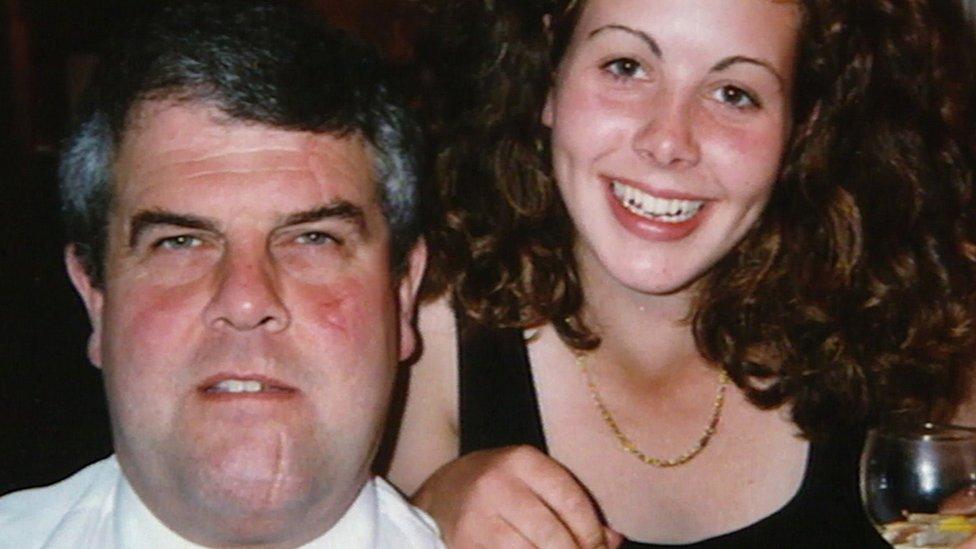
Des James says his daughter, Cheryl, was someone who easily made friends
Coroner Brian Barker QC intervened, saying he was not happy with the line of questioning.
Earlier in the hearing, Mr Beggs said evidence that Pte James was a "troubled young lady who might have had suicidal thoughts " had "intensified" since Nicholas Blake QC's review of the case.
He said the review, in 2006, had heard Pte James had talked about the death of another recruit, Pte Sean Benton, while on lone guard duty and she had "mentioned shooting herself around this time".
"She had personal problems in her private life to resolve," he said. "There was an absence of any reason why this popular young woman would be subjected to an attack by another."
The inquest is expected to last up to seven weeks and hear evidence from more than 100 people.
- Published20 June 2019
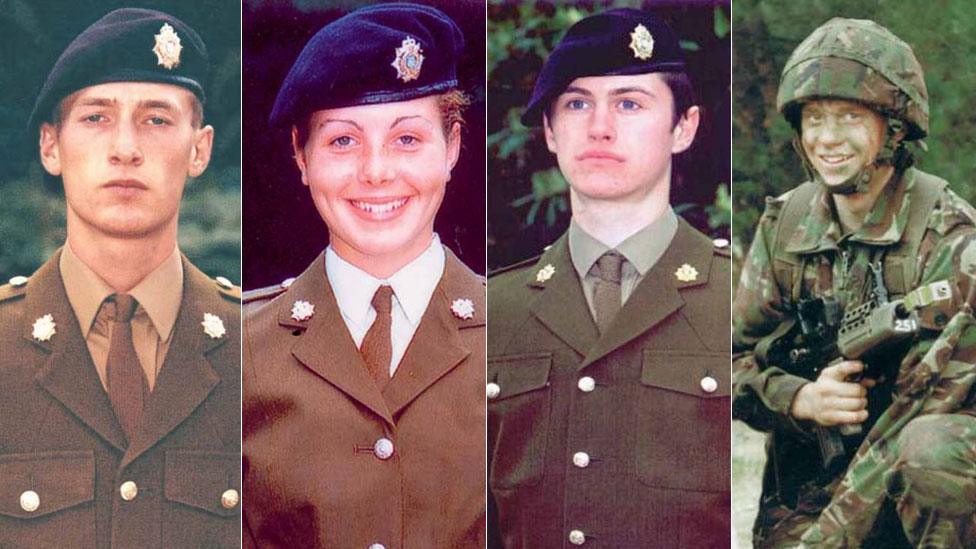
- Published1 February 2016
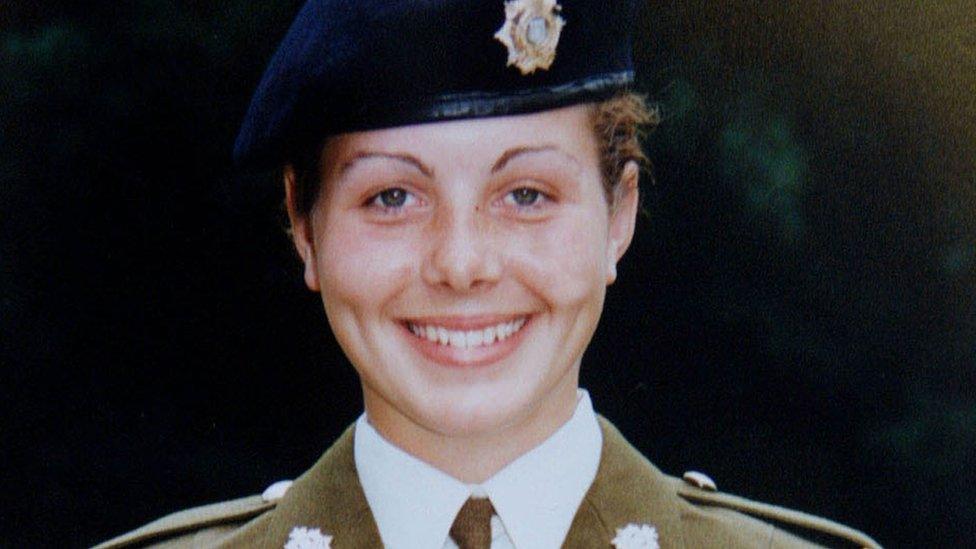
- Published31 January 2016
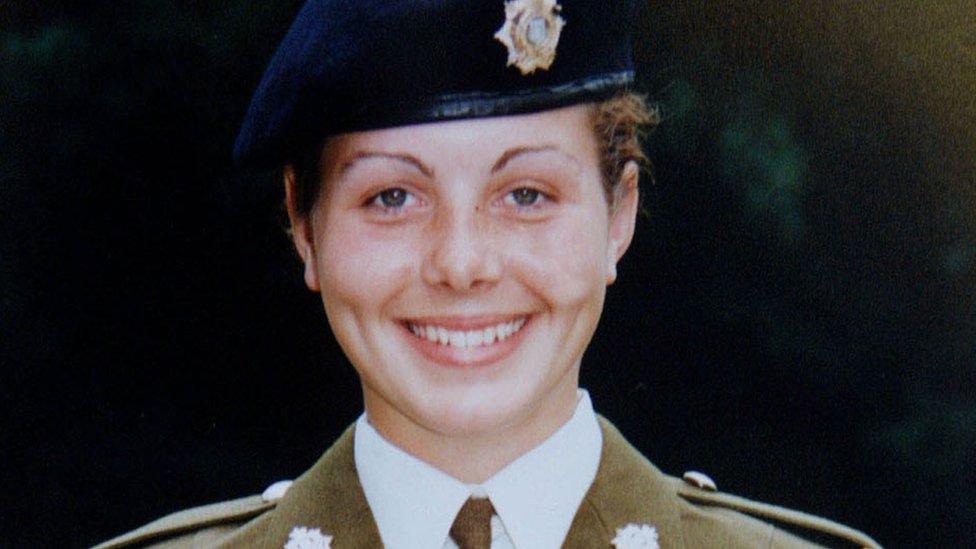
- Published11 January 2016

- Published14 December 2015

- Published10 September 2015

- Published10 September 2015
